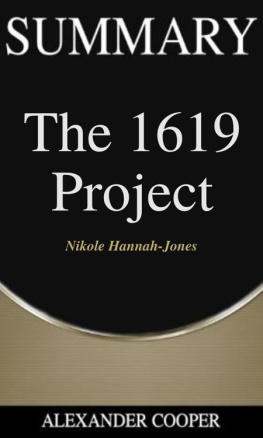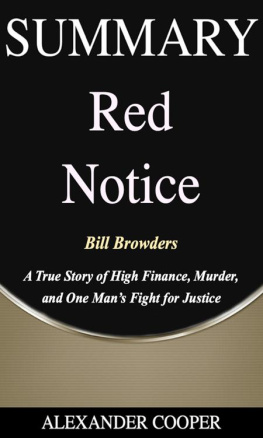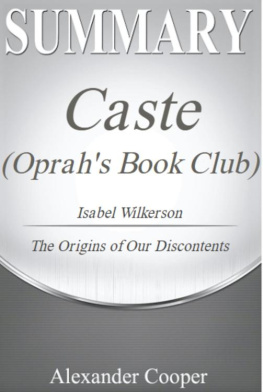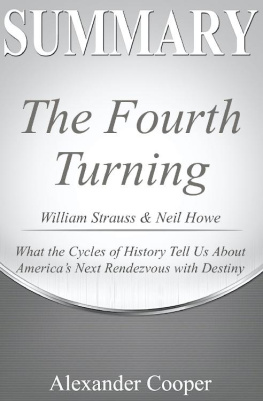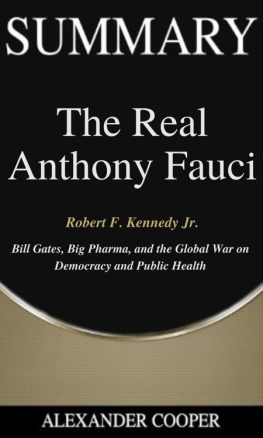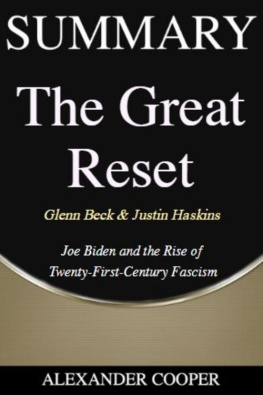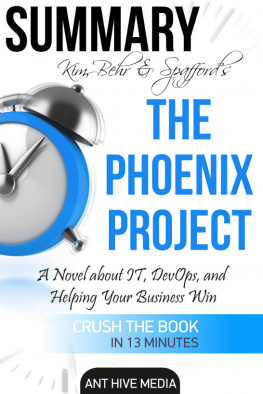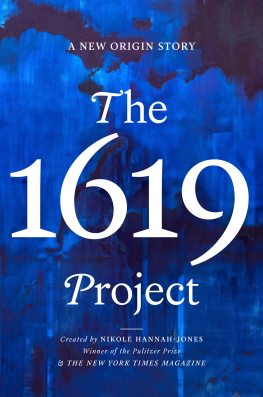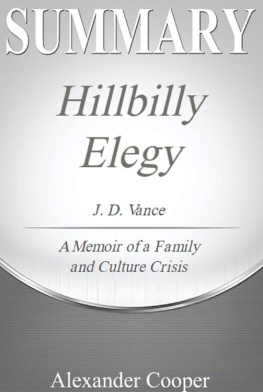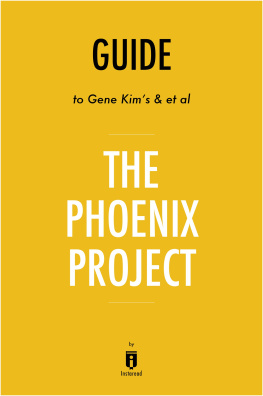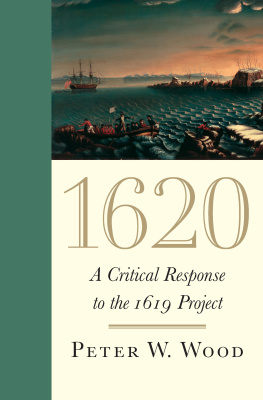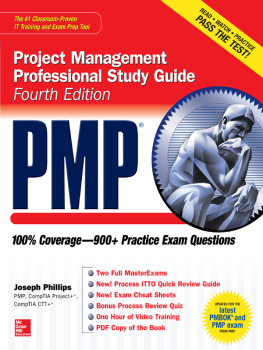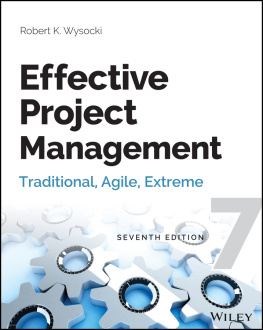SUMMARY of The 1619 Project
by Nikole Hannah-Jones - A Comprehensive Summary
SUMMARY ofThe 1619 Project
The famed 1619 Project of the New York Times is as interestingfor the second half of its title as it is for the first. What isthe project of this vast undertaking; what are its main findingsand messages, as well as its underlying methodologies andobjectives? There is an elusiveness, almost a malleability,pervading a piece of journalismor history, or perhaps anything inbetweenfounded on the specificity of a particular date. Part ofthe difficulty in evaluating it stems from the variety of ways inwhich the project has been presented: There's the Aug. 18, 2019,print and online edition of the New York Times Magazine specialissue; a broadsheet edition that same day; a podcast spinoff; anew, lengthy book version; an illustrated children's book; and themany responses, updates, and essays published by the Timesdefending, enhancing, or otherwise explaining the project.
These themes combine to create an ongoingand robust work that sparked a national seismic discussion aboutthe legacy of slavery and persistent racial injustice in Americansociety. It's also a work with many opposing impulses, which may beconfusing and conflicting at times. This is apparent in "The 1619 Project: A New Origin Story," a book that softenssome of the previous magazine collection's edges while alsotranscending its...
To be continued...
Here is a Preview of What You Will Get:
A Full Book Summary
An Analysis
Fun quizzes
Quiz Answers
Etc.
Get a copy of this summary and learn about the book.
The famed 1619 Project of the New York Times isas interesting for the second half of its title as it is for thefirst. What is the project of this vast undertaking; what are itsmain findings and messages, as well as its underlying methodologiesand objectives? There is an elusiveness, almost a malleability,pervading a piece of journalismor history, or perhaps anything inbetweenfounded on the specificity of a particular date. Part ofthe difficulty in evaluating it stems from the variety of ways inwhich the project has been presented: There's the Aug. 18, 2019,print and online edition of the New York Times Magazine specialissue; a broadsheet edition that same day; a podcast spinoff; anew, lengthy book version; an illustrated children's book; and themany responses, updates, and essays published by the Timesdefending, enhancing, or otherwise explaining the project.
These themes combine to create an ongoing androbust work that sparked a national seismic discussion about thelegacy of slavery and persistent racial injustice in Americansociety. It's also a work with many opposing impulses, which may beconfusing and conflicting at times. This is apparent in "The 1619 Project: A New Origin Story," abook that softens some of the previous magazine collection's edgeswhile also transcending its original mission as a historicalcorrective, informing readers what they must now do or riskpersonal involvement in the hurtful story in which they have justbeen told.
The enigma begins where the project started: in1619, with the first ship transporting enslaved Africans to arrivein the English American colonies and that moment's fitting place inAmerican history. In his introduction to the special edition, NewYork Times Magazine editor Jake Silverstein first portrays theproject as a thought experiment, a counterfactual to the commonlyheld belief that 1776 is the year of the nation's founding. "Whatif we told you, although, that this reality, which is taught in ourschools and universally celebrated every Fourth of July, isincorrect, and that the country's genuine birthday, the moment whenits defining contradictions first entered the world, was in lateAugust of 1619?" Three sentences later, the question mark hasvanished, and the tone has become more definitive. The brutalsystem of slavery established that month is not just the UnitedStates' "original sin," but also "the country's fundamental birth,"according to Silverstein. The broadsheet supplement to the projectbroadens that perspective, stating that "the 1619 Project aims toreinterpret American history, making plain that slavery is thebasis on which this country is formed." On the same day, fromwhat-if to no-matter-what.
This doesn't exactly put things to rest. Morethan a year later, Silverstein wrote in an article titled "OnRecent Criticism of The 1619 Project" that the idea of 1619 as thecountry's founding year should be viewed as a "metaphor" ratherthan taken literally. This is why, he claimed, the New York Timeshad removed from the project's web presence a description of 1619as our "real origin." However, Silverstein stated last month in anessay titled "The 1619 Project and the Long Battle Over U.S.History" that the date "may be regarded" the "inception" of theUnited States.
Nikole Hannah-Jones, the Times writer whoconceived the whole project and authored the main magazine column,provides a few perspectives in the new book edition. She warns inthe foreword that this is "not the sole creation myth of ourcountrythere must be several." Then, in the first chapter,Hannah-Jones replicates the content of her original magazine piece,referring to African-Americans as the country's "real foundingfathers," deserving of the title "as those men cast in alabaster inthe nations capital." She claims that the genesis narrative in the1619 Project is "truer" than the one we've known 400 pages later,in a final chapter.
What would an astute reader draw from all ofthis? That 1619 is a thought experiment, a metaphor, or thenation's genuine beginning, but not its foundation, but perhaps itsconception, or simply one of many origin storiesbut the truer one?Despite all of the argument surrounding the project, the squabbleabout the beginning point is a debate that the 1619 Project ishaving with itself.
These distinctions are essential since framingis everything when it comes to this topic. In her latest book,Hannah-Jones argues that history is much more than merelyunderstanding what happened. "It's also how we think about whathappened," says the author. If this initiative had been dubbed "TheSlavery Project" and made comparable claims about the long-termeffects of Black servitude and racism in American life, it wouldhave been impactful but not as widely heard. Reframing America'sbeginning from July 1776 to August 1619from the "wrong" date tothe "right" oneand putting those markers in conversation with oneanother is what makes you stop and ponder, to gaze into opposingframes.
In his most recent Times column, Silversteinreinforced this sentiment. He emphasized the "dynamic, contentious,and really fairly fascinating process" by which historicalunderstanding is reshaped, rather than history being "a fixedentity." He was discussing historiography, which is the study ofhow history is written and evolved history's own history, headded.
From magazine to book and all in between, the1619 Project has its own dynamic and contentious historiography. Asit works out what it wants to convey, it is sometimes direct,sometimes subtle, and sometimes grudging.

